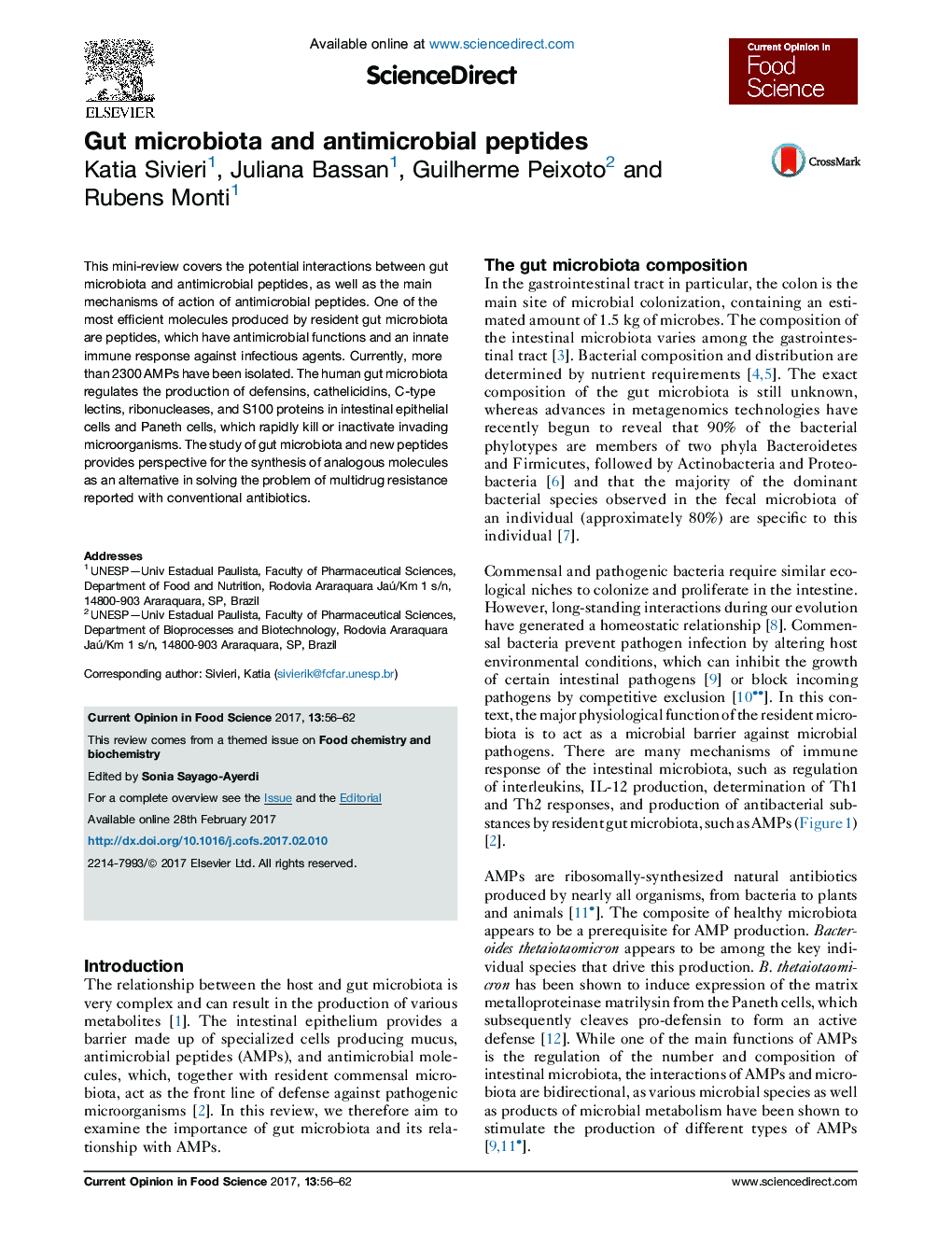| Article ID | Journal | Published Year | Pages | File Type |
|---|---|---|---|---|
| 5520922 | Current Opinion in Food Science | 2017 | 7 Pages |
â¢The most efficient molecules produced by resident gut microbiota are peptides.â¢The human gut microbiota regulates the production of AMPs.â¢Discovery of AMPs provide perspective for the synthesis of analogous molecules as an alternative to antibiotics.
This mini-review covers the potential interactions between gut microbiota and antimicrobial peptides, as well as the main mechanisms of action of antimicrobial peptides. One of the most efficient molecules produced by resident gut microbiota are peptides, which have antimicrobial functions and an innate immune response against infectious agents. Currently, more than 2300 AMPs have been isolated. The human gut microbiota regulates the production of defensins, cathelicidins, C-type lectins, ribonucleases, and S100 proteins in intestinal epithelial cells and Paneth cells, which rapidly kill or inactivate invading microorganisms. The study of gut microbiota and new peptides provides perspective for the synthesis of analogous molecules as an alternative in solving the problem of multidrug resistance reported with conventional antibiotics.
Graphical abstractDownload high-res image (231KB)Download full-size image
